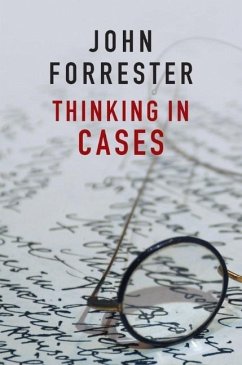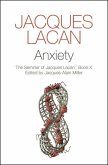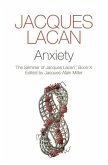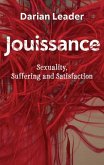What exactly is involved in using particular case histories to think systematically about social, psychological and historical processes? Can one move from a textured particularity, like that in Freud's famous cases, to a level of reliable generality? In this book, Forrester teases out the meanings of the psychoanalytic case, how to characterize it and account for it as a particular kind of writing. In so doing, he moves from psychoanalysis to the law and medicine, to philosophy and the constituents of science. Freud and Foucault jostle here with Thomas Kuhn, Ian Hacking and Robert Stoller, and Einstein and Freud's connection emerges as a case study of two icons in the general category of the Jewish Intellectual.
While Forrester was particularly concerned with analysing the style of reasoning that was dominant in psychoanalysis and related disciplines, his path-breaking account of thinking in cases will be of great interest to scholars, students and professionals across awide range of disciplines, from history, law and the social sciences to medicine, clinical practice and the therapies of the world.
Hinweis: Dieser Artikel kann nur an eine deutsche Lieferadresse ausgeliefert werden.
While Forrester was particularly concerned with analysing the style of reasoning that was dominant in psychoanalysis and related disciplines, his path-breaking account of thinking in cases will be of great interest to scholars, students and professionals across awide range of disciplines, from history, law and the social sciences to medicine, clinical practice and the therapies of the world.
Hinweis: Dieser Artikel kann nur an eine deutsche Lieferadresse ausgeliefert werden.
'Offers an engaging and informativie critique of those who, like Aristotle, reject individual instances as objects of knowledge, as well as giving a very welcome account of the value of thinking in cases not only in psychoanalysis, but also anthropolgy, law, physics, and medicine.'
Janet Sayers, Times Higher Education
'Thinking in Cases tells us many new and original things about what it is to generalize, and about what it is to write about psychoanalysis as part of the history and philosophy of science. Forrester's unique combination of subtlety and erudition is often startling and always revealing in these illuminating essays.'
Adam Phillips, psychoanalyst and writer
'Turning the flow of life and experience into so many case histories is a basic technique in medicine and law, as in anthropology and psychoanalysis. In these brilliant and provocative explorations, John Forrester offers his readers means to make sense of how such histories work and what it is to think of the world as made up of cases. He shows conclusively how thinking in cases represents nothing less than an entirely distinct form of reasoning, possessed of its own powers and claims, with remarkable implications for the means of managing and defining individuals and of analysing modern life. This book is an indispensable guide to ways of writing and reasoning in modernity, just as it embodies the luminous achievement of an unsurpassed craftsman of analysis and theory.'
Simon Schaffer, University of Cambridge
"Everyone with an interest in the medical case history and its wider ramifications should read this book."
Medical Humanities
"John Forrester, who died in 2015, was the most original historian of the human sciences of his generation... Thinking in Cases is an ideal introduction to Forrester's thought, containing some of his most important papers. He combined a scientist's delight in devising new methods to understand recondite things with an exceptionally acute sense of the role of contingency in intellectual discovery. These strengths were central to his style of reasoning and, as these pages testify, made him one of a kind. Everyone with an interest in the medical case history and its wider ramifications should read this book."
British Medical Journal
Janet Sayers, Times Higher Education
'Thinking in Cases tells us many new and original things about what it is to generalize, and about what it is to write about psychoanalysis as part of the history and philosophy of science. Forrester's unique combination of subtlety and erudition is often startling and always revealing in these illuminating essays.'
Adam Phillips, psychoanalyst and writer
'Turning the flow of life and experience into so many case histories is a basic technique in medicine and law, as in anthropology and psychoanalysis. In these brilliant and provocative explorations, John Forrester offers his readers means to make sense of how such histories work and what it is to think of the world as made up of cases. He shows conclusively how thinking in cases represents nothing less than an entirely distinct form of reasoning, possessed of its own powers and claims, with remarkable implications for the means of managing and defining individuals and of analysing modern life. This book is an indispensable guide to ways of writing and reasoning in modernity, just as it embodies the luminous achievement of an unsurpassed craftsman of analysis and theory.'
Simon Schaffer, University of Cambridge
"Everyone with an interest in the medical case history and its wider ramifications should read this book."
Medical Humanities
"John Forrester, who died in 2015, was the most original historian of the human sciences of his generation... Thinking in Cases is an ideal introduction to Forrester's thought, containing some of his most important papers. He combined a scientist's delight in devising new methods to understand recondite things with an exceptionally acute sense of the role of contingency in intellectual discovery. These strengths were central to his style of reasoning and, as these pages testify, made him one of a kind. Everyone with an interest in the medical case history and its wider ramifications should read this book."
British Medical Journal









